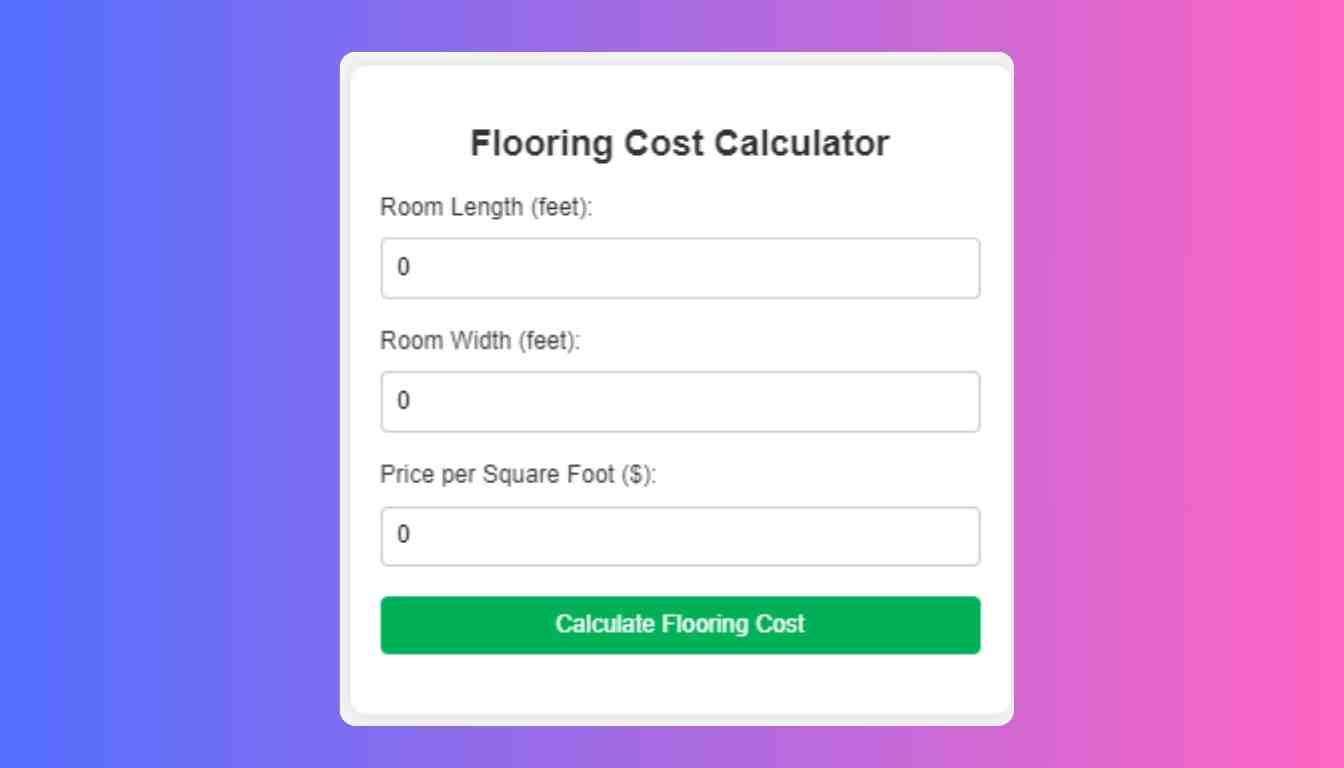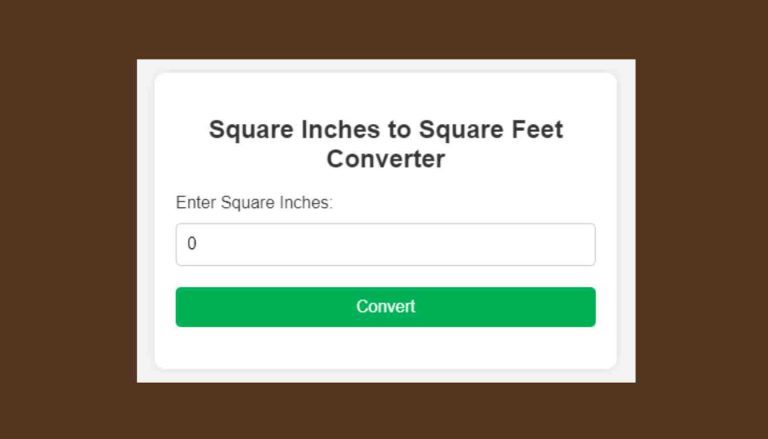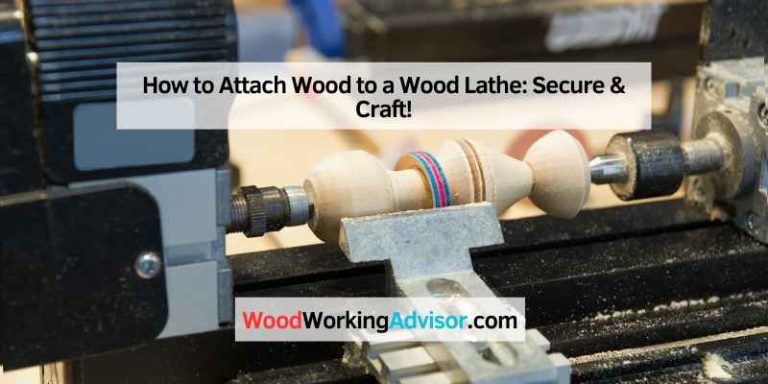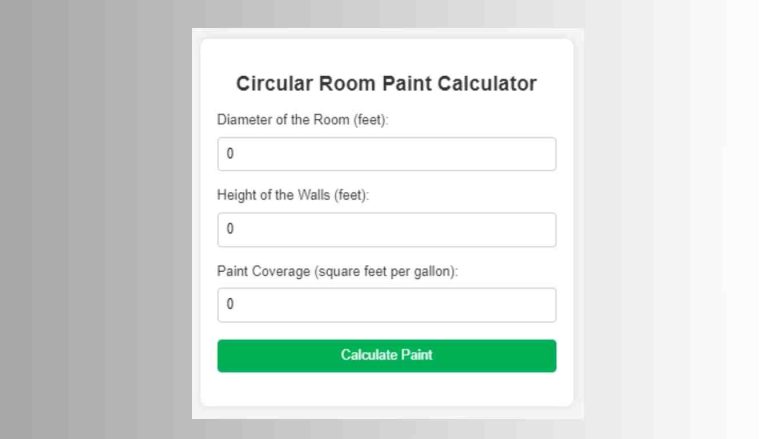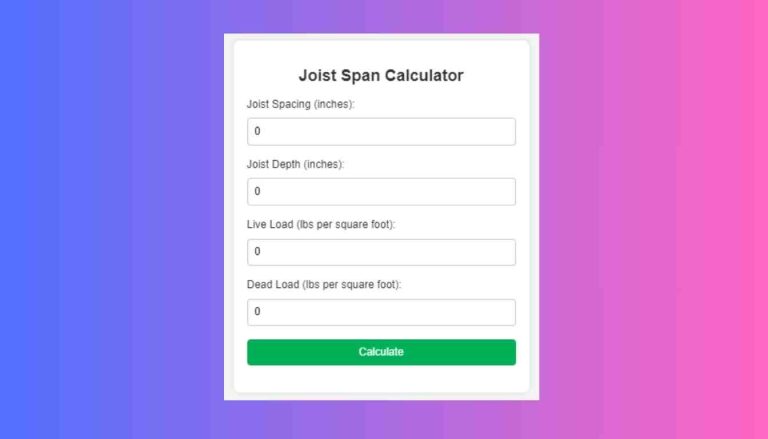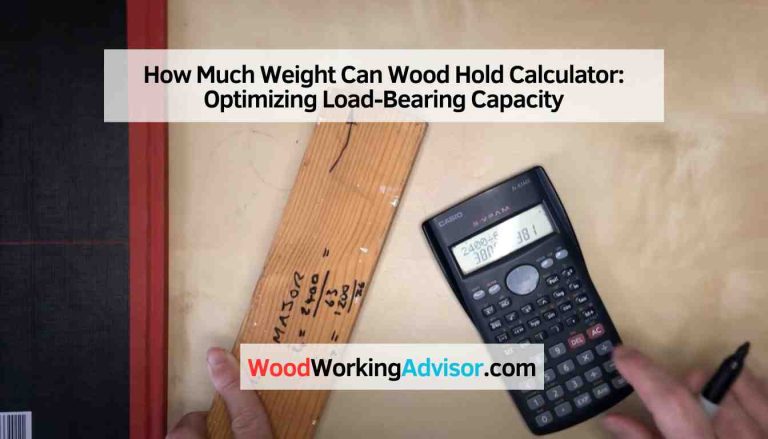Flooring Cost Calculator
A Flooring Cost Calculator helps estimate the price of new flooring. Users input room dimensions and material costs for accurate calculations.
Flooring Cost Calculator
Deciding to renovate your home with new flooring can be exciting, but budgeting for the project often involves careful consideration. Before taking the plunge, homeowners and contractors frequently turn to a Flooring Cost Calculator to streamline the budgeting process. This tool simplifies the daunting task of crunching numbers, offering a clear picture of potential expenses.
By entering specific details like room size and choice of materials, you receive a tailored cost estimate, enabling informed decisions about your renovation investment. Whether planning for hardwood, tile, or carpet flooring, this calculator is an indispensable aid in managing renovation finances efficiently.
Introduction To Flooring Cost Calculators
An essential step in remodelling is budgeting, and flooring can be one of the largest expenses. Flooring cost calculators simplify this task. They help homeowners and contractors estimate the price of new flooring with ease. Whether you’re considering hardwood, tile, or carpet, calculators provide quick cost insights.
The Role Of Flooring Cost Calculators
Think of these calculators as your personal financial advisors for renovation. They assist by:
- Breaking down costs for different flooring materials
- Determining the quantity of material needed
- Accounting for additional expenses like underlayment or adhesives
With these tools, you gain clarity on the overall cost and can make informed decisions.
Benefits Of Using A Calculator Before Renovation
Before you start tearing up your old floor, recognize the benefits:
- Accurate budgeting prevents overspending
- Better communication with contractors about project scope
- Helps in comparing different flooring options based on price
Utilizing a flooring cost calculator can set you up for a successful renovation project with no financial surprises.
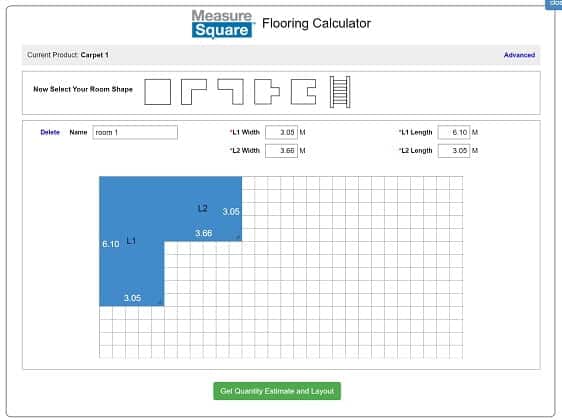
Credit: measuresquare.com
Types Of Flooring Options
When planning a home renovation or a new build, choosing the right flooring is crucial. Not only does it need to match your style, but it must also fit your budget. A flooring cost calculator helps break down the expenses. Let’s delve into the various flooring options available, highlighting their unique characteristics and potential cost implications.
Hardwood Floors: Elegance And Longevity
Hardwood floors bring a classic touch to any space. Their beauty and durability stand the test of time. With proper care, these floors can last decades. Though they may have a higher upfront cost, their longevity makes them a cost-effective choice in the long run. Hardwood flooring comes in various species, each with its unique grain pattern and color.
Carpeting: Comfort And Variety
Carpet offers a warm, cozy feel underfoot. It’s a popular choice for bedrooms and living areas. The variety of textures, patterns, and colors available means you can find the perfect match for any room. While prices can range from budget-friendly to luxurious, a flooring cost calculator can help estimate the total cost for carpeting your home.
Laminate: Affordability Meets Style
Laminate flooring provides the look of hardwood without the expense. It’s a durable, easy-to-install option perfect for busy households. With its resistance to scratches and stains, laminate is a practical choice for those wanting style and ease at a lower price point.
Tile: Durability And Timelessness
Tile flooring is renowned for its durability and easy maintenance. Ideal for bathrooms and kitchens, tile withstands moisture and high traffic. The range of materials – from ceramic to natural stone – offers a variety of price points. A timeless choice, tile flooring can elevate the appeal of any home.
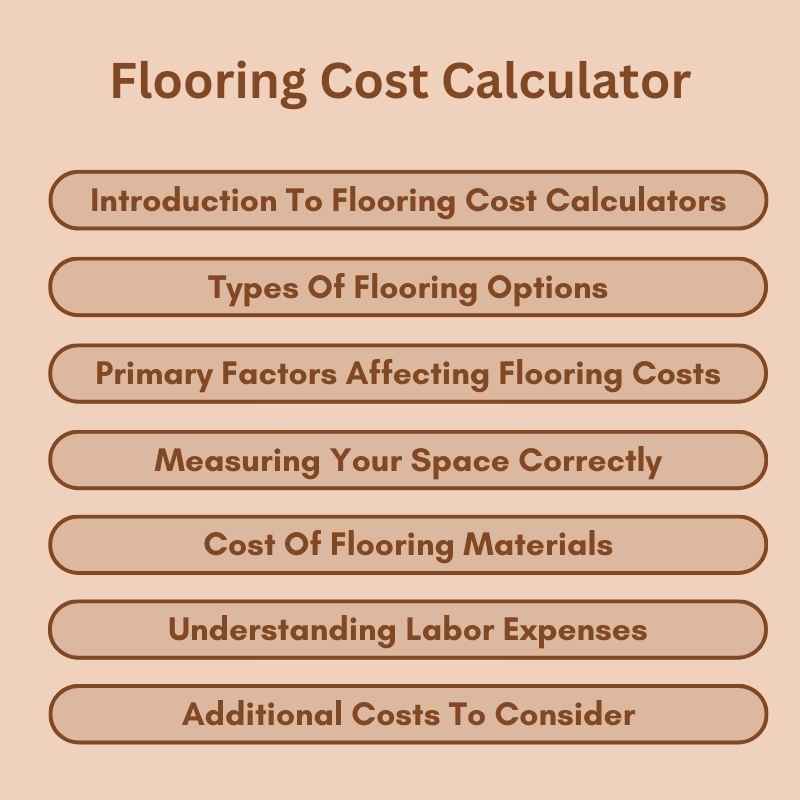
Primary Factors Affecting Flooring Costs
Embarking on a new flooring project can be exciting. Yet, it can also bring a lot of questions, especially regarding the cost. Understanding the primary factors that influence flooring expenses ensures no surprises. Cost calculators help anticipate budgets but knowing what goes into those numbers is crucial.
Material Choices And Price Variations
Material selection significantly impacts the overall flooring cost. Each type of flooring material comes with its unique price point. Here’s a brief overview:
- Laminate: Affordable and durable
- Hardwood: High-end with a classic look
- Vinyl: Cost-effective and versatile
- Tile: Prices vary widely by type
- Carpet: Soft and varies in quality and cost
It’s vital to explore these options and match them with your budget and style preferences.
Labor Expenses: Professional Vs. Diy
Labor costs can either add a significant amount or provide savings. Consider these points:
- Professional installation: Ensures expertise but comes at a higher cost.
- DIY approach: Saves money if you have the required skills and tools.
Analyze skill levels and time commitment before deciding which route to take.
Room Dimensions And Flooring Space Calculations
Calculating the exact flooring area is critical for accurate cost estimation. Use a flooring calculator to determine the amount of material needed.
| Room Shape | Measurements Needed |
|---|---|
| Square/Rectangle | Length x Width |
| Irregular Shapes | Divide into sections and calculate separately |
Include extra material for cutting, errors, and future repairs.
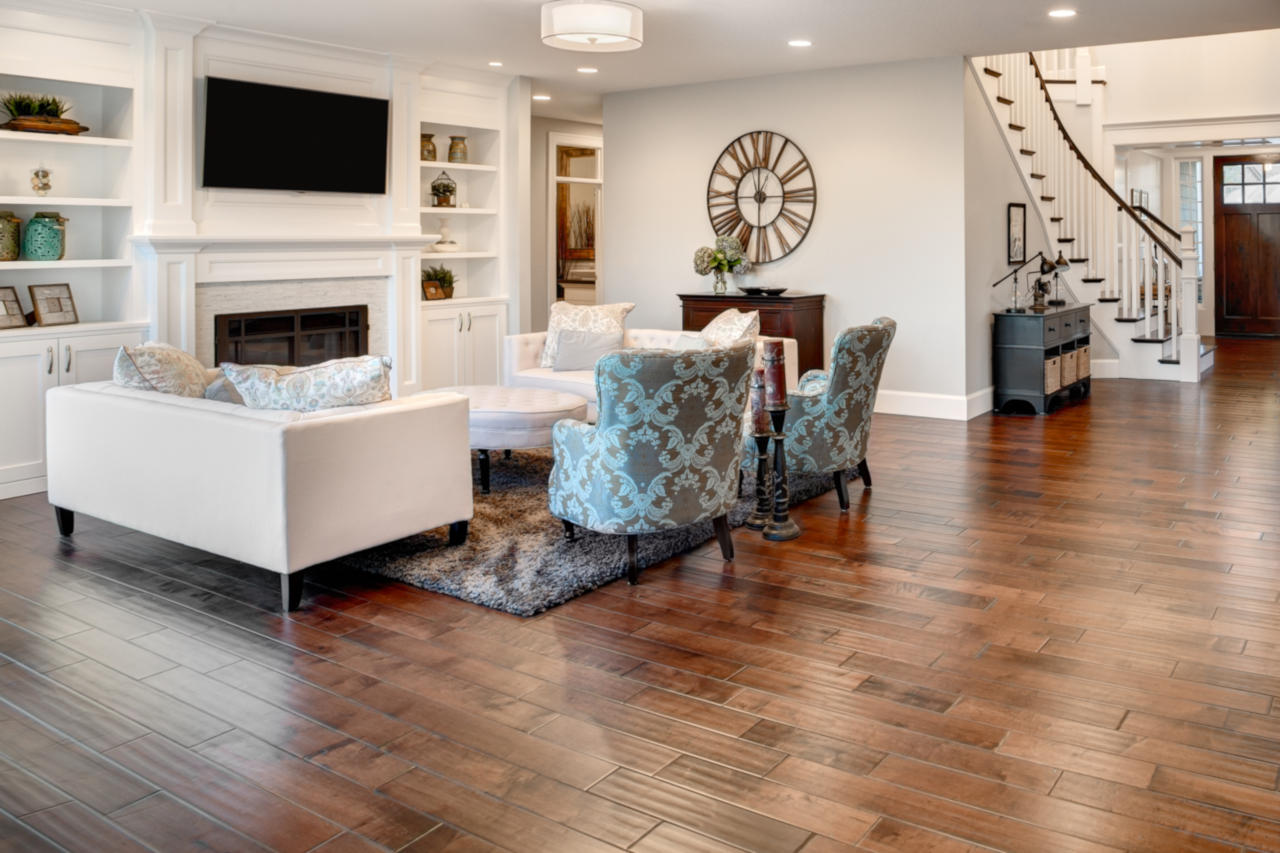
Credit: www.inchcalculator.com
Measuring Your Space Correctly
Before exploring the Flooring Cost Calculator, it is vital to measure your space with precision. Accurate measurements ensure that you buy the right amount of flooring. This saves time and money. Let’s dive into the best tools and techniques for precise measurements, especially when dealing with irregular spaces.
Tools And Techniques For Accurate Measurements
Start with the right tools to measure your space. Simple tools like a measuring tape and a notepad are essential. Follow these steps for best results:
- Clear the room of furniture for an unobstructed space.
- Measure the length and the width at the widest points of the room.
- Record these numbers carefully.
- Multiply the length by the width to calculate the area in square feet.
| Step | Action | Tool |
|---|---|---|
| 1 | Measure Length | Measuring Tape |
| 2 | Measure Width | Measuring Tape |
| 3 | Calculate Area | Calculator or Notepad |
Double-check your measurements for accuracy. A laser measure can offer more precise readings for large spaces.
Dealing With Irregular Spaces
Iregular spaces can be tricky. Break them down into smaller, regular shapes like squares or rectangles. Measure each one separately. Here are tips for irregular rooms:
- Sketch the room layout on paper.
- Divide the sketch into manageable shapes.
- Measure each shape separately.
- Add all the areas together for the total square footage.
For alcoves or indents, measure these areas as separate entities and add them to the main space’s total area. Use a flexible measuring tape for curved edges. Remember, precision is key to utilizing the Flooring Cost Calculator effectively.
Cost Of Flooring Materials
Choosing the right material matters when flooring your home. Different materials come with different price tags. A flooring cost calculator is essential to budget wisely. It helps you see the total cost upfront. Read on to understand the prices for various flooring types.
Price Range Per Flooring Type
Flooring options widely vary in cost. Let’s explore some common types and their prices.
| Flooring Type | Low Price | High Price |
|---|---|---|
| Laminate | $1/sq. ft. | $5/sq. ft. |
| Hardwood | $3/sq. ft. | $12/sq. ft. |
| Tile | $1.50/sq. ft. | $15/sq. ft. |
| Carpet | $2/sq. ft. | $7/sq. ft. |
| Vinyl | $1/sq. ft. | $5/sq. ft. |
Calculating Wastage And Extra Material
Mistakes happen, and extra materials are a must.
Here’s how to factor in wastage:
- Measure your space accurately.
- Use a flooring cost calculator for initial estimates.
- Add 10%-15% on top of your calculation.
This ensures enough materials even with cuts and errors.
Understanding Labor Expenses
Planning a flooring project involves many details. One major cost is labor. Knowing these costs helps plan a budget. Let’s dive into labor expenses for flooring installation.
Cost Of Professional Installation Per Square Foot
Flooring professionals often charge by the square foot. This makes it easy to calculate costs. See the table below for general price ranges:
| Flooring Type | Cost Per Square Foot |
|---|---|
| Carpet | $0.50 – $1.00 |
| Hardwood | $3.00 – $5.00 |
| Laminate | $2.00 – $3.50 |
| Tile | $4.00 – $6.00 |
Factors Influencing Installation Costs
Different aspects can affect installation costs. These include:
- Flooring type: Materials like hardwood cost more to install.
- Room size: Larger areas require more labor.
- Complexity: Patterns or layouts can add to the work.
- Removal: Taking out old flooring can increase costs.
- Location: Rates can vary by region.
- Preparation: Subfloor work may be needed.
Remember, these factors can change your total flooring project cost. Always check with local professionals for accurate estimates.
Additional Costs To Consider
When planning for new flooring, remember it’s not just the price per square foot. There’s more to consider. You must think about extra charges too. These include preparing the subfloor, tossing the old flooring, and bringing in new materials. Let’s explore they may affect your budget.
Subfloor Preparation Charges
A strong subfloor keeps your new flooring in good shape. Subfloor preparation might raise your cost. This step can be key to ensure a smooth installation.
Common subfloor prep tasks include:
- Cleaning
- Leveling
- Repairing
- Priming for adhesion
Removal And Disposal Of Old Flooring
Out with the old before the new flooring comes in. This step cannot be skipped. Contractors might charge for this service.
Cost factors include:
| Type of Flooring | Difficulty | Price Range |
|---|---|---|
| Carpet | Medium | $1-$2 per sq ft |
| Hardwood | High | $2-$4 per sq ft |
Transportation Fees For Materials
Delivering materials often has a cost. Heavy products like tiles or hardwood may raise these fees. Stores may offer flat rates or scale the charge by distance or amount.
Consider these to estimate transportation fees:
- Distance from store
- Type of flooring material
- Quantity ordered
How To Use A Flooring Cost Calculator
Revamping your home starts with updating your floors. But before you dive into purchasing new flooring, it’s vital to know how much you’ll be spending. A Flooring Cost Calculator simplifies the budgeting process. Let’s explore how these handy tools work.
Inputting Your Data Accurately
Getting it right from the start makes all the difference. You need a tape measure and your floor plan. Here is what to do:
- Measure your space to get the square footage.
- Remember to include closets and nooks in your calculations.
- Choose the type of flooring you want. Different materials have different prices.
- Enter the cost per square foot for your chosen flooring.
Reading And Interpreting Calculator Results
Once you input your data, it’s time to understand the results. Your calculator will likely give you:
- The total square footage needed for your project.
- An estimate of the total cost of the flooring material.
- Potential extra costs, like underlayment or installation fees.
Ensure you account for a waste factor of about 5-10% for cuts and errors. Look at the final number and see if it fits your budget. This figure helps you plan financially for your beautiful new floors.
Tips For Reducing Flooring Project Costs
Embarking on a new flooring project can be exciting. Yet, managing expenses is crucial. Below are savvy ways to trim costs without sacrificing quality. Keep your budget intact and still achieve the beautiful flooring you envision.
Opting For Cost-effective Materials
Choosing the right materials can significantly affect your budget. Consider these options:
- Laminate: Mimics hardwood yet costs less.
- Vinyl: Offers durability at a budget-friendly price.
- Ceramic tiles: Provides versatility and cost savings.
Selecting materials within your budget reduces overall flooring costs.
Timing Purchases With Sales And Discounts
Stores often have sales during certain times. Look out for these:
- Holiday sales: Special discounts during festive seasons.
- Clearance events: Save on last season’s styles.
- Bulk purchases: Buying more may lead to bigger savings.
Plan your project around these sales for great deals.
Considering Long-term Savings
Investing in quality can reduce future costs:
| Material | Benefit | Long-Term Savings |
|---|---|---|
| Engineered Wood | Durability | Lesser need for repairs. |
| Stone Tiles | Longevity | Infrequent replacements. |
| High-Quality Laminate | Wear resistance | Extended lifecycle. |
Opt for materials that offer durability and ease of maintenance.
Common Mistakes To Avoid
Planning a flooring project? Calculating costs can be tricky. Simple errors can lead to budget overruns. Here’s what to watch for:
Miscalculating Square Footage
Accurate measurements ensure a reliable estimate. Mistakes in calculating square footage can result in too much or too little material. Always double-check room dimensions. Consider obstacles like cabinets and stairs.
Ignoring Hidden Costs
Beyond material costs, remember the extras. Hidden costs can include removal of old flooring, subfloor repairs, and baseboard replacements. Don’t forget to factor these into your budget.
Skimping On Quality For Price
Cheaper options may seem tempting, but choosing quality pays off in the long run. Inferior materials can wear out quickly, leading to more costs. Always balance cost with durability and appearance.
Final Thoughts
Choosing the right flooring is a significant decision for any homeowner.
Different materials and styles can greatly affect both the cost and the aesthetics of a room.
Using a Flooring Cost Calculator simplifies the process, providing clear insights into potential expenses.
Recap On Maximizing Value
Before wrapping up, let’s rewind on how to get the best value for your investment:
- Compare different materials based on durability and price.
- Include installation costs in your budget planning.
- Consider long-term maintenance for sustainability.
- Seek professional advice when in doubt.
Resources And Further Reading
For those eager to dive deeper, many resources are available:
- Flooring Installation Guides – Step-by-step instructions.
- Material Comparison Charts – Detailed comparisons of flooring types.
- Cost Management Tips – Strategies to keep expenses down.
- Expert Forums – Connect with professionals for advice.
Frequently Asked Questions For Flooring Cost Calculator
How Much Does New Flooring Cost Per Square Foot?
The cost per square foot for new flooring varies widely by material. Hardwoods typically cost $6 to $12, laminates around $3 to $7, and tiles range from $5 to $10.
Can I Calculate Flooring Cost By Room Size?
Absolutely. Multiply the room’s length by its width to get the square footage. Then multiply that number by the cost per square foot of your chosen flooring.
What Factors Influence The Cost Of Flooring Installation?
Installation costs are affected by labor rates, flooring type, complexity of the room layout, and any additional materials required such as adhesives or underlayment.
Is There A Difference In Cost Between Diy And Professional Installation?
Yes, DIY installation saves on labor costs but may incur extra expenses for tools and supplies. Professional installation ensures expertise but comes at a higher total cost.
Conclusion
Wrapping up, our flooring cost calculator stands as your go-to tool for budget insight. With its ease of use, it takes the guesswork out of renovation planning. It helps ensure you stay on track with finances, all while transforming your space.
Venture forth; calculate, plan, and step into the future of your new floors with confidence.

